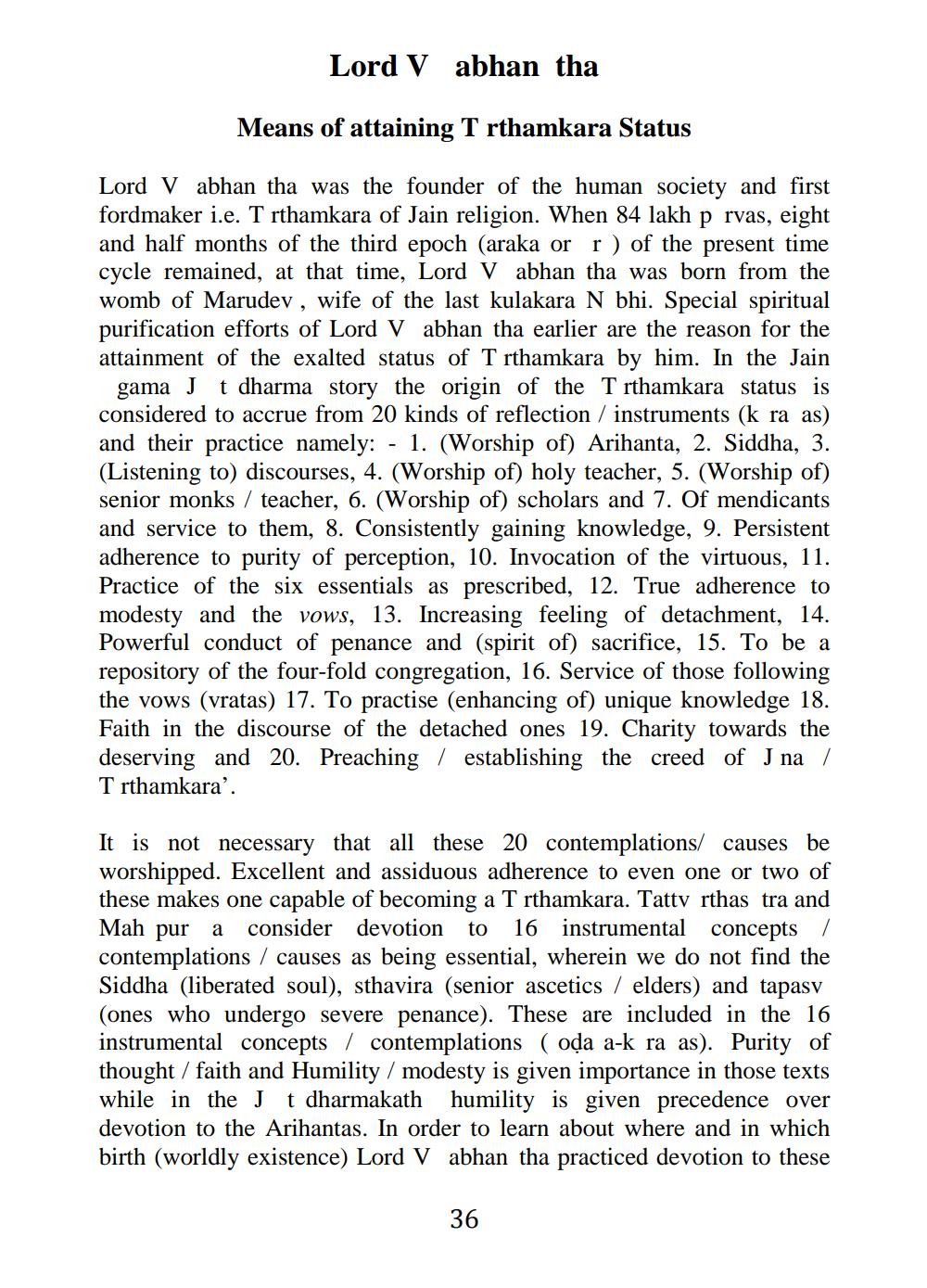________________ Lord Vssabhanatha Means of attaining Tirthamkara Status Lord Vrsabhanatha was the founder of the human society and first fordmaker i.e. Tirthamkara of Jain religion. When 84 lakh purvas, eight and half months of the third epoch (araka or ara) of the present time cycle remained, at that time, Lord Vssabhanatha was born from the womb of Marudevi, wife of the last kulakara Nabhi. Special spiritual purification efforts of Lord Vrsabhanatha earlier are the reason for the attainment of the exalted status of Tirthamkara by him. In the Jain Agama Jnatadharma story the origin of the Tirthamkara status is considered to accrue from 20 kinds of reflection / instruments (karanas) and their practice namely: - 1. (Worship of) Arihanta, 2. Siddha, 3. (Listening to) discourses, 4. (Worship of) holy teacher, 5. (Worship of) senior monks / teacher, 6. (Worship of) scholars and 7. Of mendicants and service to them, 8. Consistently gaining knowledge, 9. Persistent adherence to purity of perception, 10. Invocation of the virtuous, 11. Practice of the six essentials as prescribed, 12. True adherence to modesty and the vows, 13. Increasing feeling of detachment, 14. Powerful conduct of penance and (spirit of) sacrifice, 15. To be a repository of the four-fold congregation, 16. Service of those following the vows (vratas) 17. To practise (enhancing of) unique knowledge 18. Faith in the discourse of the detached ones 19. Charity towards the deserving and 20. Preaching / establishing the creed of Jina / Tirthamkara'. It is not necessary that all these 20 contemplations/ causes be worshipped. Excellent and assiduous adherence to even one or two of these makes one capable of becoming a Tirthamkara. Tattvarthasutra and Mahapurana consider devotion to 16 instrumental concepts / contemplations / causes as being essential, wherein we do not find the Siddha (liberated soul), sthavira (senior ascetics / elders) and tapasvi (ones who undergo severe penance). These are included in the 16 instrumental concepts / contemplations (sodasa-karanas). Purity of thought / faith and Humility / modesty is given importance in those texts while in the Jnatadharmakatha humility is given precedence over devotion to the Arihantas. In order to learn about where and in which birth (worldly existence) Lord Visabhanatha practiced devotion to these 36




